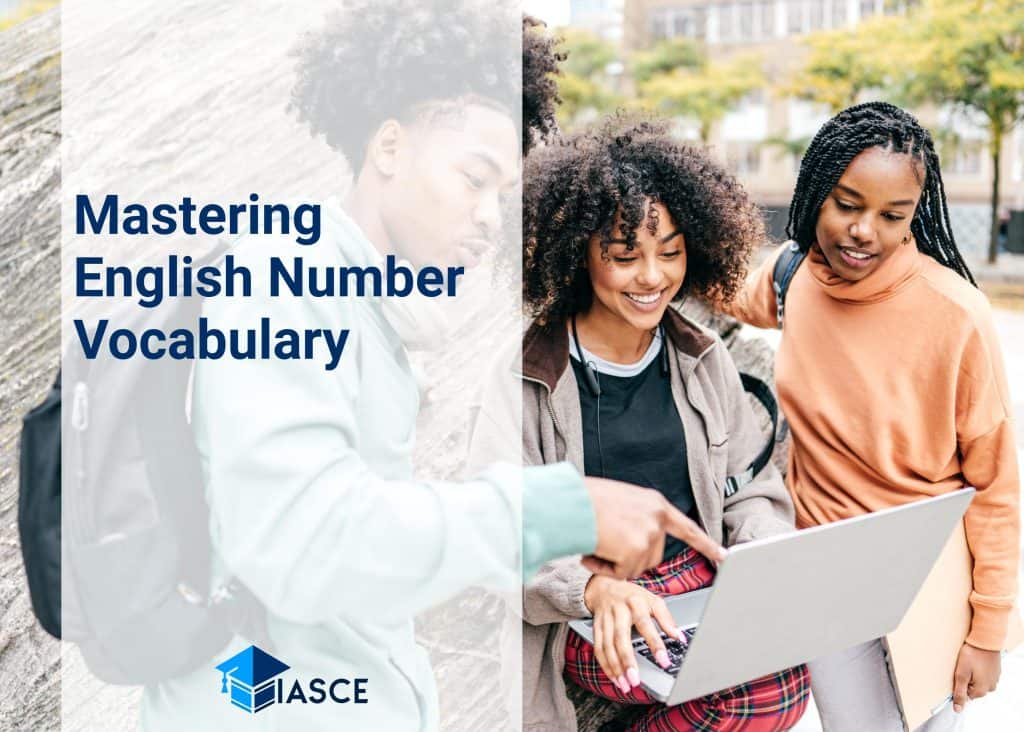Navigating the vast terrain of English number vocabulary can be quite a challenge. From cardinal and ordinal numbers to fractions, decimals, and percentages, there’s so much to absorb! But fear not, I’m here to make your journey smoother.
We’ll start by unpacking the basics that often trip up language learners. Then we’ll move onto more complex concepts. By the end of this guide, you will have a solid grasp on using number vocabulary confidently in your English conversations.
Mastering Number Vocabulary in English: A Grammar Guide is designed for anyone hoping to enhance their numerical literacy in English. Whether you’re just starting out or looking to refine your skills further, this guide has something for everyone! So let’s dive right into it and master those tricky numerals together.
Understanding the Basics of Number Vocabulary in English
Mastering number vocabulary in English might seem like a daunting task, but I assure you it’s easier than it looks. Let’s start with the basics and take it from there.
Numbers in English can be categorized into different types, including cardinals, ordinals, multiplicatives and fractionals. Cardinals are your basic numbers that represent quantity – one, two, three, and so on. Ordinals signify position or order – first, second, third etc. Multiplicatives denote times or fold – once, twice, thrice while fractionals indicate fractions – half (1/2), quarter (1/4) etc.
Here’s a simple table to illustrate:
| Type | Examples |
|---|---|
| Cardinals | one, two |
| Ordinals | first, second |
| Multiplicatives | once,twice |
| Fractionals | half ,quarter |
Next up is understanding how to use these numbers correctly. When we’re dealing with cardinals for instance,
- For single-digit numbers (one through nine), spell them out.
- For double-digit and above (10 and beyond), use numerals.
However this isn’t set in stone as context matters too! In formal writing for example,you’ll want to write out numbers below 100.
There are also some peculiarities when using ordinals:
- We don’t usually say “the” before dates except when we refer to specific historical events or periods such as “the third of November” or “the Sixties”.
Finally let’s touch on plurals. In English,numbers remain unchanged regardless of whether they represent singular or plural quantities – “five apples”, not “fives apples”. This is unlike some other languages where the cardinal changes based on singularity/plurality.
As you can see,number vocabulary in English has its quirks,but hopefully this guide helps clear things up a bit!
Strategies for Mastering English Number Vocabulary
Mastering numbers in English can be a real game changer. It’s not just about knowing how to count, but understanding the nuances that come with the use of number vocabulary. Here are a few strategies I’ve found particularly helpful.
1. Start with basics: The foundation is crucial. Know your digits from 0 to 9 and then build up to two-digit numbers, three-digit numbers and so on.
2. Practice makes perfect: Like most skills, regular practice is key when it comes to mastering number vocabulary in English. You might want to set aside some time each day for this purpose.
3. Use everyday situations: Incorporate learning into your daily life by reading out prices while shopping or telling the time in English.
- Interactive learning: Engage in activities that require you to use numbers such as cooking from an English recipe or playing games like Bingo.
- Understand ordinal and cardinal numbers: These are essential components of number vocabulary which often confuse learners.
Let’s take a look at an example:
| Cardinal Numbers | Ordinal Numbers |
|---|---|
| One | First |
| Two | Second |
| Three | Third |
- Learn fractions and decimals: Don’t shy away from fractions and decimals! They may seem complicated at first but they’re really quite straightforward once you get the hang of them.
- Utilize online resources: There are numerous websites and apps available that provide exercises focused on improving number vocabulary comprehension.
Remember, no one becomes fluent overnight, so don’t worry if progress seems slow initially; consistency is key!
The Essential Role of Grammar in Learning Number Vocabulary
There’s no denying it, grammar plays a crucial role when you’re learning number vocabulary in English. It’s not just about knowing the words; it’s also about understanding how to use them correctly.
Let me break it down for you. You see, numbers aren’t used in isolation. They’re often part of sentences – they describe quantities, positions, periods of time and more. This is where grammar enters the picture. Knowing the correct grammatical rules helps us place these numbers accurately within a sentence.
For instance, consider the difference between ‘hundreds’ and ‘hundred’. We say “I have hundreds of books” but “I have one hundred books”. Here we can clearly see how our number vocabulary adapts according to grammatical requirements – plural versus singular form.
Another example could be using ordinal and cardinal numbers – First (ordinal) versus One (cardinal). And don’t even get me started on fractions and decimals! Each has its own set of rules that we need to follow.
So what does this all mean? Well, it means that while memorizing number vocabulary is important, understanding context and grammar is equally critical. In essence:
- Use singular forms with specific quantities.
- Use plural forms when speaking generally.
- Know your ordinals from your cardinals.
- Understand how to express fractions and decimals properly.
Mastering these aspects will surely boost your confidence while dealing with number vocabulary in English. Remember: practice makes perfect! Don’t hesitate to use these new skills frequently – write emails or diary entries or even do some mental math in English! Let’s keep learning together!

